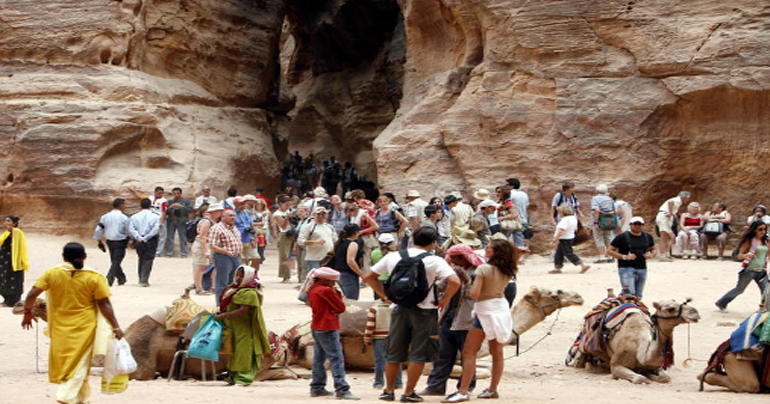
All for the tourists of Middle East
16 Aug 2015Tourism is also one of the world’s fastest-growing industries. Over the past few years we have seen a revolution in the globalisation of economies and the resulting complexity of interconnectedness. The Middle East has emerged as the most promising emerging market for investments and tourism is an area that the Middle East is putting in several of its resources into. Across the region, countries, states and cities are embarking on an unparalleled program of investment and development to increase capacity, improve infrastructures and grow tourist numbers and revenues. Many nations have chalked up plans till 2020 to improve and upgrade their cities and countries to attract more tourists in the region of 150 million every year. Religious tourism forms the bulk of travel in many Middle Eastern countries. The tourism industry therefore is very important to economic growth as well as the environment.
Mega projects are already underway in the region or are planned for the near future and they are focused mainly on building mainly in infrastructure basis and aviation developments.
Behind the numbers are commonplace extravagances that include Michelin-starred chefs, Italian linens, camel milk cappuccinos and private butler services. Over the past decade, Middle Eastern tourism ministries have launched aggressive branding campaigns.
According to reports, international travellers are less likely now than in recent years to regard the Middle East as a single, homogeneous region with the same issues and problems affecting all countries across the region. Rather, they’re increasingly assessing potential travel destinations on a case-by-case basis. Even as the likes of Dubai and Oman look to capitalise on ever growing tourist numbers, other parts of the Middle East are facing a challenge in returning to their once healthy levels of tourism.
For long time tourism, except pilgrimage travels, has been considered as culturally inappropriate and economically unnecessary phenomenon by Arab governments. The majority of their demand for tourism originates from neighbouring countries. Religion is an important factor that can help shape the culture, attitudes and values of society.
Based on the Islamic understanding of God, man and nature, tourism is a part of religion, and travel is fundamental in Islam.
An exciting tourism project is set to promise a bright economic future for Saudi Arabia with the advent of ‘Green Tourism.’ In an area that was once considered a wasteland, tour operators are now seeing opportunities for safari packages, dune riding, sand surfing and camel and horse races. The tourism industry is evolving and changing in the Middle East and its rich cultural heritage is also attracting tourists like never before. Doha is emerging as the next big destination after the cities of the UAE and the future is slowing presenting some surprising changes in the tourism industry.
What people say

A business leader with a clear objective to Build a Legacy through his business acumen and passion to excel, being associated with Dr Tejinder opens up new avenues for learning.

Dr Tejinder Singh , the man who taught me to teach and lead. My first and only professional Guru who would run the mile first and push me to walk that . A wonderful human being and an exceptional professional.

Tejinder is one of the most amazing client/business partner that I have ever met.

I met Bhattia sahib once and found him very friendly,intelligent and very focused head of an efficient organisation.

In my association with Tejinder I have found him to be very frank in his views.He is very strong in his domain knowledge and also has sharp commercial acumen.

I was hired by Tejinder Sir, in the year 2003, which was also the turning point in my career.

My 1st Impression about Mr. Tejinder Singh Bhatia - An Exteremely Confident Professional, Who knows What he is Doing and Where he wants to Reach.

He was a dedicated and sincere person and always followed pragmatic approach while fulfilling his job responsilbilites.

I am priviledge to work under him, he is an excellent Leader where team always ready to work for him even at oddest hour of the day.